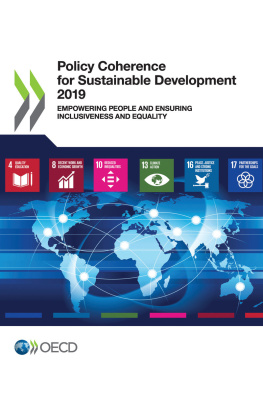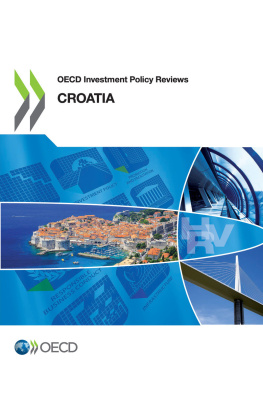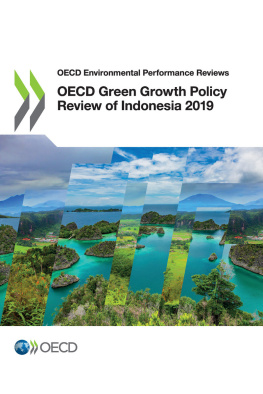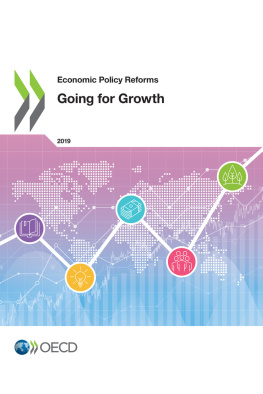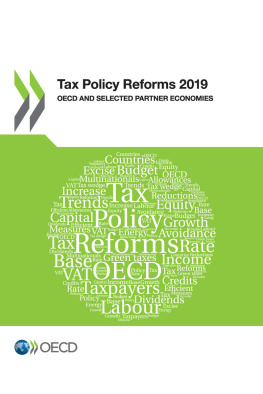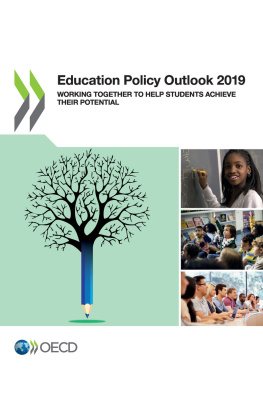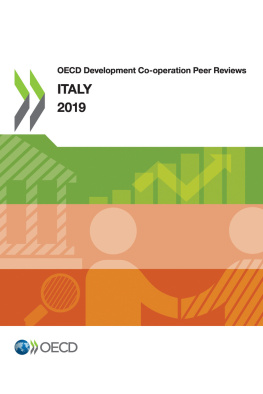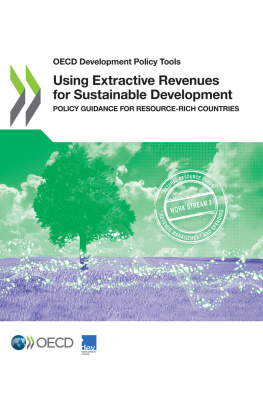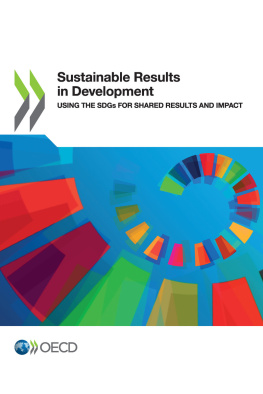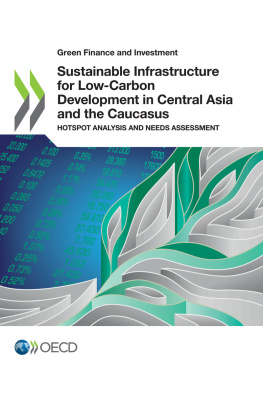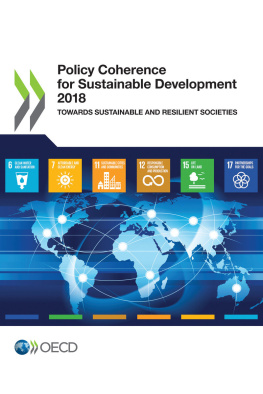OECD - Policy Coherence for Sustainable Development 2019
Here you can read online OECD - Policy Coherence for Sustainable Development 2019 full text of the book (entire story) in english for free. Download pdf and epub, get meaning, cover and reviews about this ebook. year: 2019, publisher: OECD Publishing, genre: Politics. Description of the work, (preface) as well as reviews are available. Best literature library LitArk.com created for fans of good reading and offers a wide selection of genres:
Romance novel
Science fiction
Adventure
Detective
Science
History
Home and family
Prose
Art
Politics
Computer
Non-fiction
Religion
Business
Children
Humor
Choose a favorite category and find really read worthwhile books. Enjoy immersion in the world of imagination, feel the emotions of the characters or learn something new for yourself, make an fascinating discovery.
Policy Coherence for Sustainable Development 2019: summary, description and annotation
We offer to read an annotation, description, summary or preface (depends on what the author of the book "Policy Coherence for Sustainable Development 2019" wrote himself). If you haven't found the necessary information about the book — write in the comments, we will try to find it.
OECD: author's other books
Who wrote Policy Coherence for Sustainable Development 2019? Find out the surname, the name of the author of the book and a list of all author's works by series.
Policy Coherence for Sustainable Development 2019 — read online for free the complete book (whole text) full work
Below is the text of the book, divided by pages. System saving the place of the last page read, allows you to conveniently read the book "Policy Coherence for Sustainable Development 2019" online for free, without having to search again every time where you left off. Put a bookmark, and you can go to the page where you finished reading at any time.
Font size:
Interval:
Bookmark:
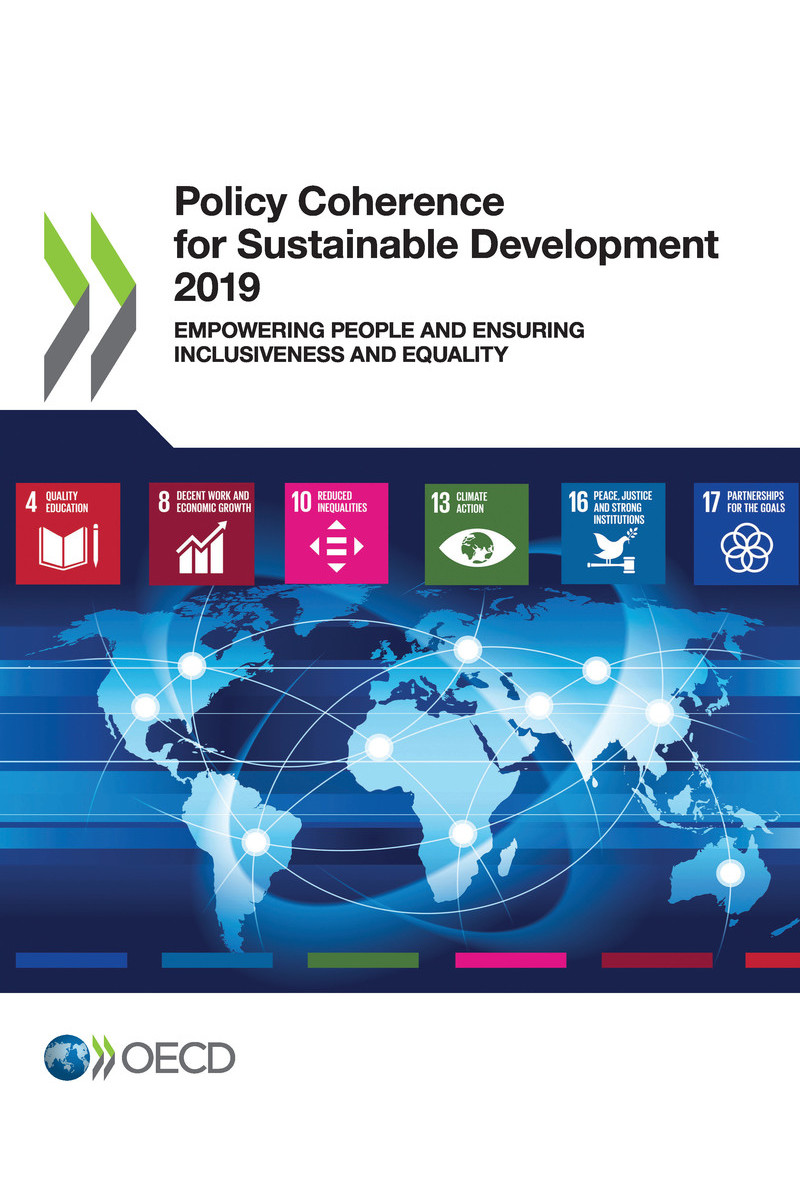
OECD (2019), Policy Coherence for Sustainable Development 2019: Empowering People and Ensuring Inclusiveness and Equality , OECD Publishing, Paris, https://doi.org/10.1787/a90f851f-en .
The 2030 Agenda is a universal plan of action for people, planet and prosperity. Implementing the Sustainable Development Goals (SDGs) calls for coordinated action and policies at all levels of government local, national and global. It requires identifying and managing trade-offs, as well as seeking out and optimising synergies.
Ensuring coherence across the policy cycle is essential for making sure that progress on one SDG does not undermine progress on another. Policy coherence, embodied in Target 17.14, also means limiting adverse impacts of domestic actions on other countries or on shared global spaces and resources such as the climate or oceans.
The 2019 edition of Policy Coherence for Sustainable Development, the third in a series, forms part of the OECDs contribution to the United Nations ECOSOC High-Level Political Forum (HLPF). It provides evidence on the critical interlinkages between the SDGs under HLPF review Goal 4 on quality education; 8 on decent work and economic growth; 10 on reduced inequalities; 13 on climate action; and 16 on peace, justice and strong institutions. It calls for urgent action by all countries and underlines the importance of strong institutional and governance mechanisms for leveraging interactions between the goals, so they have the desired policy impact overall.
An important lesson learned since the adoption of the 2030 Agenda is that there is no one-size-fits-all approach for ensuring coherent SDG implementation: countries need tailored solutions that take into account the national context, including institutional set-up and political cultures. This report identifies those institutions and mechanisms enablers for policy coherence for sustainable development (PCSD) that can support countries to establish the policies and structures that work best for them. The OECD stands ready, in partnership with the United Nations and other stakeholders, to accompany countries in updating their governance toolbox and ensuring effective implementation of the 2030 Agenda.

Marcos Bonturi
Director
OECD Public Governance Directorate
Under the overall guidance of Marcos Bonturi, Director of the Public Governance Directorate, and Sara Fyson, Counsellor and Head of the Policy Coherence for Sustainable Development (PCSD) Unit, the preparation and drafting of this report was led by Carina Lindberg, with co-authors Ernesto Soria Morales and Toni Rumpf from the PCSD Unit, and Romina Boarini, Ziga Zarnic and Andres Irarrazaval from the Inclusive Growth (IG) Unit. Ebba Dohlman, former Head of the PCSD Unit, provided valuable strategic advice during the early stages of this process.
As cited throughout, the report draws extensively on analysis carried out by a range of OECD Directorates, with a number of colleagues providing useful input and feedback on earlier drafts. Special thanks go to: Adam Ostry and Tatyana Teplova in the Public Governance Directorate; Orsetta Causa in the Economics Department, Angelica Salvi Del Pero in the Directorate for Labour, Employment and Social Affairs; Kateryna Obvintseva in the Directorate for Education and Skills; Simon Buckle, Justine Garrett, Nicolina Lamhauge and Sigita Strumskyte in the Environment Directorate; John Egan, Cecilia Khouma, Ida McDonnell, Rachel Morris, Cushla Thompson, and Michael Ward in the Development Co-operation Directorate; and Michal Shinwell in the Statistics and Data Directorate. We are also grateful to Edward Hainsworth for proof-reading all chapters and to Christelle Cordova and Ricardo Sanchez Torres for providing valuable administrative assistance. The report was prepared for publication by Meral Gedik and Eleonore Morena.
Font size:
Interval:
Bookmark:
Similar books «Policy Coherence for Sustainable Development 2019»
Look at similar books to Policy Coherence for Sustainable Development 2019. We have selected literature similar in name and meaning in the hope of providing readers with more options to find new, interesting, not yet read works.
Discussion, reviews of the book Policy Coherence for Sustainable Development 2019 and just readers' own opinions. Leave your comments, write what you think about the work, its meaning or the main characters. Specify what exactly you liked and what you didn't like, and why you think so.

